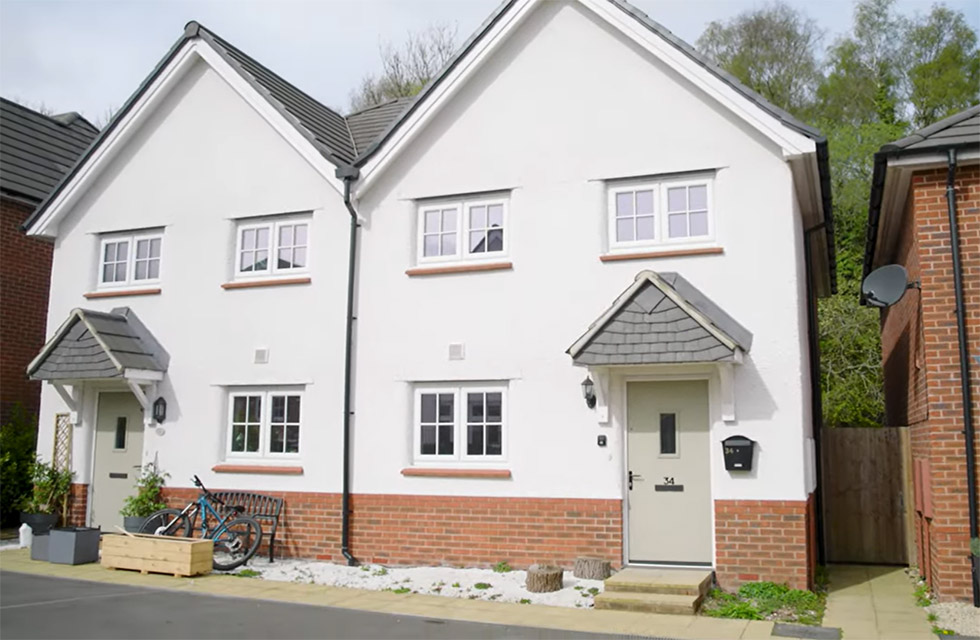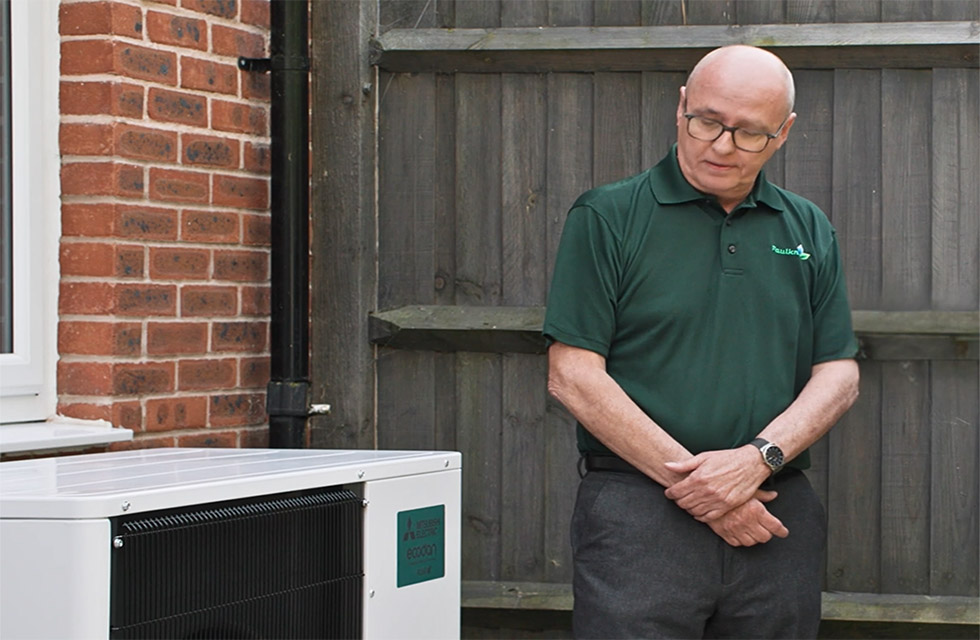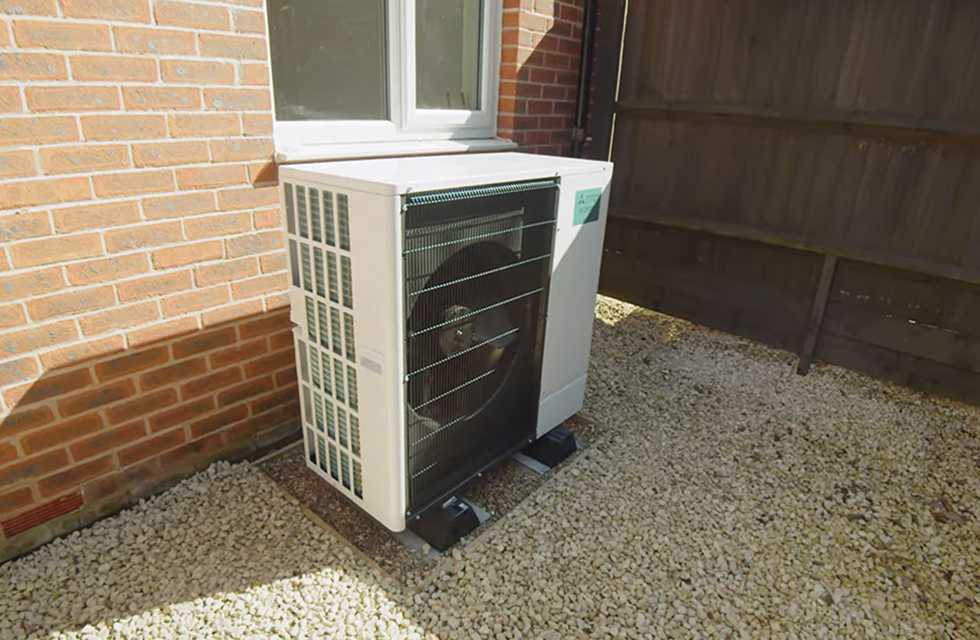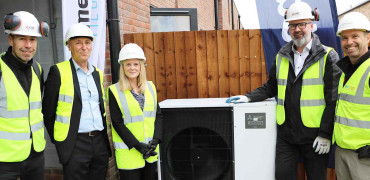Energy use in UK housing accounts for around 17% of the UK’s emissions so, as Britain confronts the twin crises of rising energy costs and climate change, the urgency to decarbonise heating on homes has never been clearer.
Replacing millions of fossil-fuel heating systems in these properties is both urgent and complex.
And this is where a new heat pump is emerging as one of the most practical and future-proof solutions – offering comfort, carbon savings, and affordability across social housing, retrofits, and new builds.
There are currently over 5.3 million homes in the social housing sector which represents one of the greatest opportunities for large-scale emissions reduction.
Managed by social landlords across the UK, housing associations and local authorities these properties are uniquely positioned to drive change at pace and scale.
This avoids the need to replace radiators or tear up floorboards, significantly lowering capital costs
A new solution
Approximately 70% of these homes already have an Energy Performance Certificate (EPC) of C or above – which is much better than the private rental sector at just 44% in.
However, energy efficiency alone is not enough. The decarbonisation of heat—specifically removing gas, oil and solid fuel boilers—is now a priority.
This is where the Ecodan R290 air source heat pump answers this call.
Unlike traditional heating systems, it doesn’t rely on combustion. Instead, it uses air as its main energy source, transferring heat into a home even when outdoor temperatures fall to -25°C.
For every kilowatt of electricity consumed, the system can deliver up to three kilowatts of heat energy, making it 300% efficient in contrast to around 90% for gas or oil boilers.
It also uses R290 refrigerant—a natural substance with an ultra-low global warming potential (GWP) of just 0.02 – making it one of the most climate-friendly options on the market.
A proven solution
For housing providers like Sovereign Network Group (SNG), which manages over 84,000 homes for 210,000 customers across London and southern England, the technology is proving ideal.
SNG places sustainability at the heart of its operations. Its commitment includes achieving EPC C across its stock by 2030, EPC B by 2047, and full net zero by 2050. Since 2020, the organisation has reduced the number of homes below EPC C by around 4,000.
SNG’s Asset Sustainability Manager Rob Hicks describes the strategy as holistic, prioritising residents’ comfort, cost-effectiveness, and carbon reduction.
“Without a balanced approach to each home, changing just the heat source could be detrimental,” he explains. “The unintended consequence could be potentially higher fuel bills and decreased warmth.”
To ensure affordability and effectiveness, SNG takes a fabric-first approach—adding insulation, improving air tightness, and upgrading ventilation before fitting low-carbon heating. For homes off the gas grid and heated by oil, solid fuel, or expensive electric storage heaters, Ecodan heat pumps have become the first choice. Rob Hicks notes that tackling air tightness and insulation first reduces the required size—and therefore cost—of the heat pump while ensuring residents enjoy reliable and affordable warmth.
Learning from neighbours
The installations are being delivered by Faulkner Heating, a contractor that has worked with SNG for nearly three decades. Having shifted its focus from gas boilers to heat pumps, Faulkner now sees an even split between the two.
Managing Director Kim Faulkner emphasises the importance of property-specific planning. “You can have two 3-bedroom semi-detached homes next to each other and they can be very different,” he says. “Time invested in surveying and on calculations is a critical factor for successful installations.”
Rob Cole, Faulkner’s Head of Renewables, adds that community engagement plays a crucial role. “Our surveyors are often at the forefront of encouraging residents that air source heat pumps can benefit them,” he explains. “We find that neighbours talk to each other about the benefits they’re getting. People find out how much money others are saving, and then they want to switch too.”
One resident, who previously relied on a single electric storage heater, reported saving around £700 per year after switching to a heat pump. These are not just environmental upgrades—they’re life-changing interventions for people experiencing fuel poverty.
Affordability is critical in the social housing sector, where 18% of households spend over 10% of their income on heating. The worst-performing homes (those rated EPC G) see residents spending up to 15.5%—five times the national average. According to the National Housing Federation, decarbonising heating and hot water is essential to reducing fuel poverty in the long term.
Faulkner Heating found that a heat pump installation can be reduced to two days
Microbore is no longer a bore
One innovation that may further simplify heat pump deployment, especially in older housing stock, is compatibility with microbore pipework.
Many homes built in the 1970s and 1980s use narrow (typically 8–10mm) pipes, which were long thought unsuitable for low-flow temperature systems like heat pumps.
However, new research, supported by Mitsubishi Electric’s Microbore White Paper, shows that with correct system design and temperature control, Ecodan high temperature heat pumps can work effectively with existing radiators and pipework.
This opens the door to significantly lower capital costs and avoids the need to replace radiators or tear up floorboards – key considerations in both retrofit and social housing projects. Faulkner Heating found that a heat pump installation can be reduced to two days.
Finding the sweet spot
SNG is currently piloting Mitsubishi Electric’s latest R290 high temperature models in homes with microbore pipework.
The systems are being monitored throughout 2025 with the aim of proving that weather-compensated, high-flow temperature heat pumps can operate efficiently and affordably using existing infrastructure.
According to Rob Hicks, the pilot is focused on finding the “sweet spot” that balances comfort, cost and carbon while reducing resident disruption and avoiding early component replacement. This approach could transform the retrofit landscape across the country.
New build homes, too, are increasingly being designed around heat pump technology. SNG’s Homes and Place Standard mandates that all new properties are built to include low-carbon heating from the outset.
This avoids the need for future retrofits and reduces the lifetime carbon footprint of each home. In these settings, Ecodan R290 is ideal. It delivers heating and hot water efficiently, is quiet in operation, and can be connected to underfloor heating or standard radiators—allowing architects and developers to retain design flexibility.
Continued policy support
The government’s support through the Social Housing Decarbonisation Fund—recently rebranded as the Warm Homes: Social Housing Fund—has been essential in driving adoption.
But long-term success will depend on continued policy support, particularly in rebalancing the cost of electricity versus gas. Currently, electricity remains significantly more expensive per kilowatt-hour, despite the cleaner nature of the energy it provides.
As Rob Hicks points out, the cost of each unit of energy plays a crucial role in determining whether a heat pump can reach its full efficiency potential. The Climate Change Committee has echoed these concerns, recommending that policy levies be removed from electricity bills to accelerate decarbonisation.
In the meantime, Mitsubishi Electric’s Ecodan R290 heat pump is showing what can be achieved with thoughtful design, strong partnerships, and a commitment to resident wellbeing.
Whether in a rural bungalow heated by coal, a city home in need of affordable warmth, or a new build designed for modern living, the R290 is proving that clean, reliable and sustainable heating is not only possible—it’s here, and it works.
Achilleas Georgiou is Communications Manager for Residential Heating










